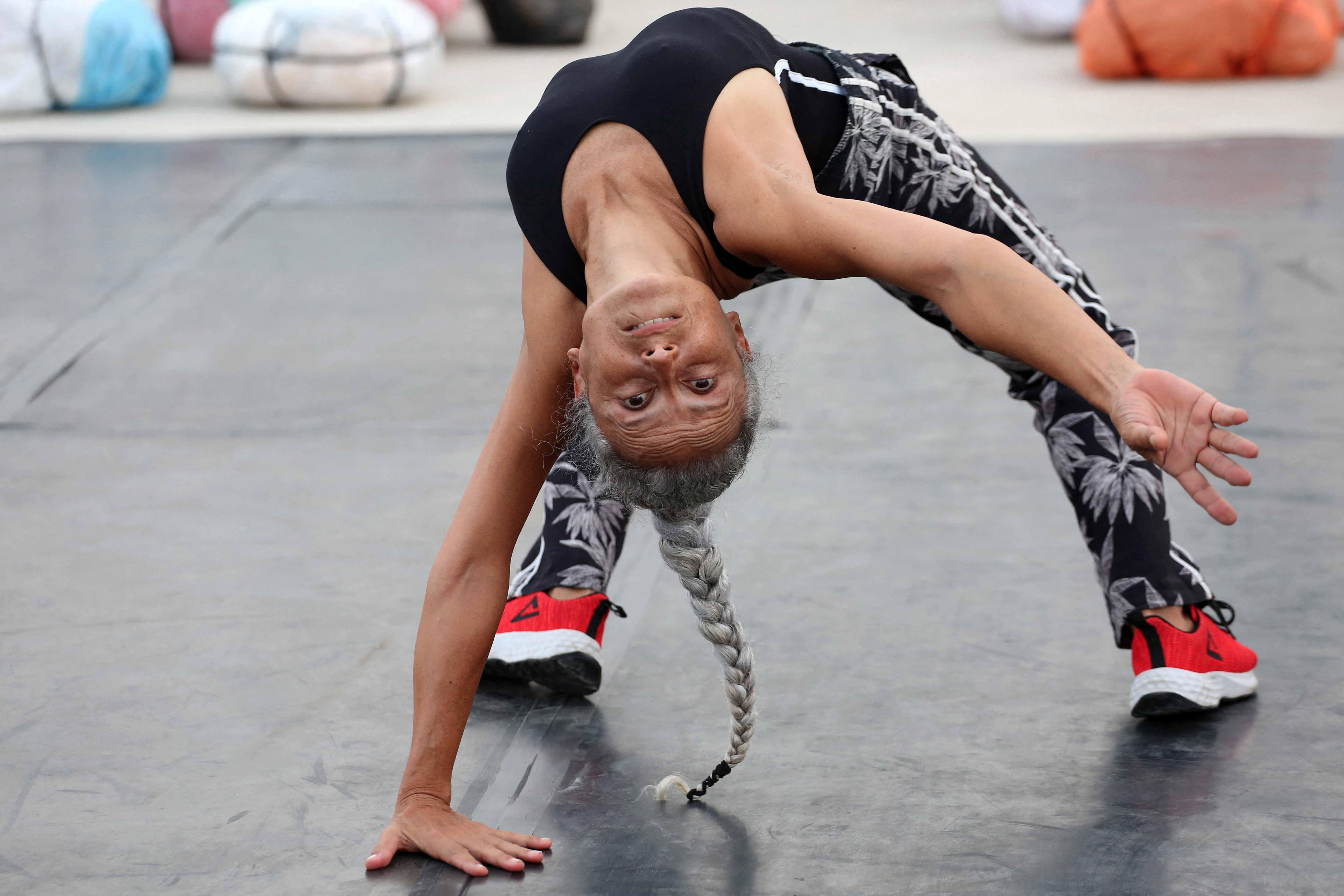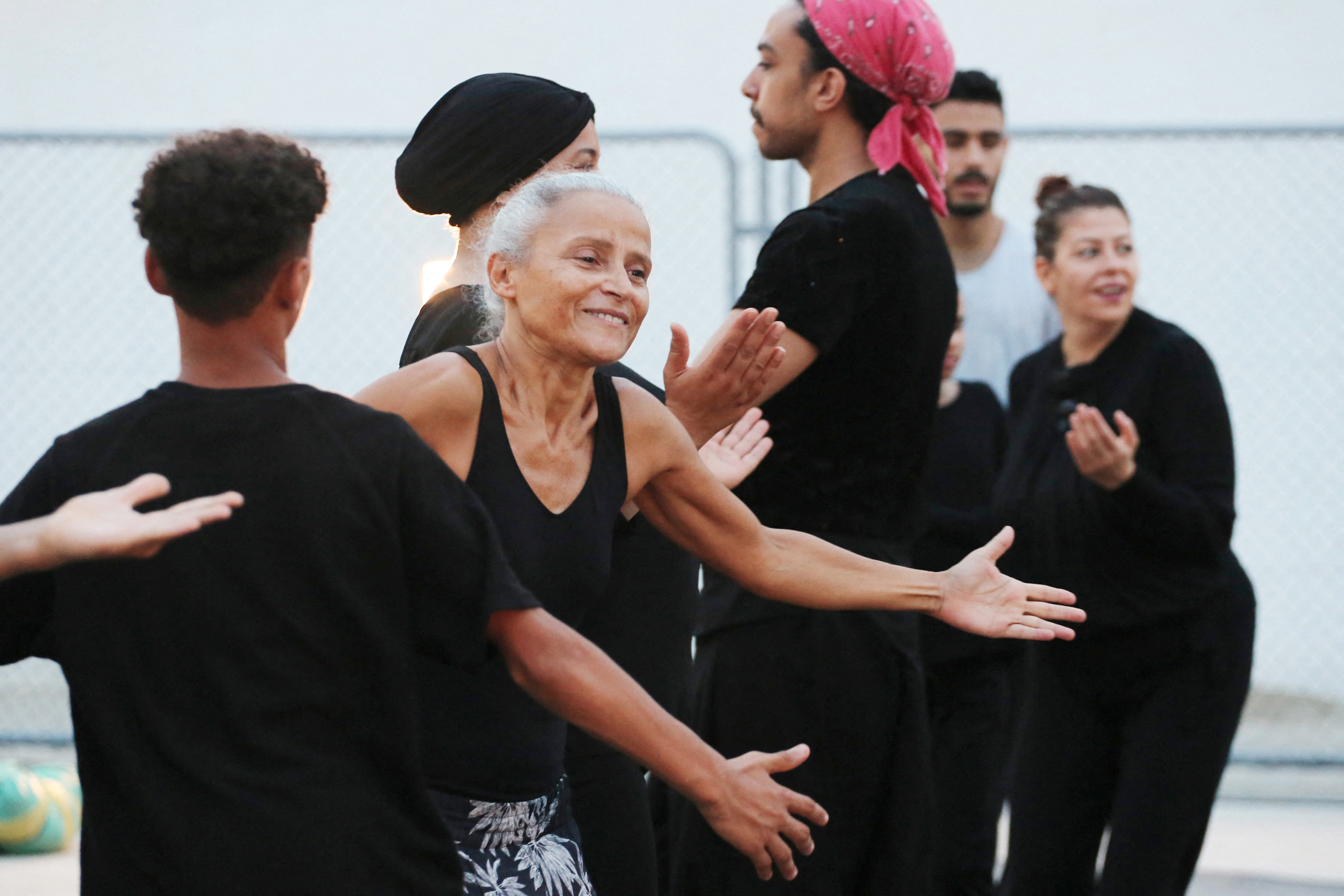
Dancers, singers and performers of varying levels of developmental and physical abilities, as well as refugees, migrants and LGBTQ people, were able to showcase their talents on stage in the Tunisian capital Tunis over the weekend.
The production, called Lines, runs until October 8 at the Dream City Festival.
The new show seeks to celebrate diversity by breaking stereotypes surrounding marginalised communities, bringing together 15 dancers from various backgrounds.
The audience was captivated when 16-year-old Rayen descended from his wheelchair to perform a mesmerising dance number, and when a 13-year-old singer and dancer, Iyed, who is visually impaired, was gently hoisted into the air by the other performers.
“The idea is to break down all the walls,” said 35-year-old choreographer Andrew Graham, a Franco-British dance artist and teacher based in Marseille with his company L’Autre Maison.
Graham conceived of Lines after directing workshops in Tunis in 2021 for L’Art Rue, the organiser of Dream City, and activities aimed at making art accessible to underprivileged children.

The choreographer said he also drew inspiration from the stories of his grandfather, a Sicilian from Tunisia, and from “this extremely mixed country that has blended many cultures”.
‘Paradise for differences’
The show features rhythmic hadra chants from the Muslim Sufi tradition and electronic music beats.
Among the performers is openly gay dancer and actor Ahmed Tayaa who said the production is a “paradise for people with all kinds of differences”.
“The people who see the show will discover their disability on the inside,” he said.
He said he was amazed to see his 21-year-old sister Nourhene, who has Down syndrome, perform, and marvelled at having “discovered the artist that is Nourhene”.
Hakima Bessoud, the mother of 13-year-old Iyed, said she is proud to join her son as they live out a passion that she said was a “childhood dream”.
She left a tourism sector job in 2018 to accompany her son at the National Conservatory of Music of Tunis.
Since rehearsals began for Lines, her life has been “turned upside down”.
“Before, I had the routine of a homemaker: children, the house,” she said. “Now, I have a lot of energy, and I rush to do everything to attend rehearsals.”
Racial strife
Tunisia is one of the main departure points for boats carrying refugees and migrants trying to cross the Mediterranean for Europe and the number of sub-Saharan migrants in Tunisia has been increasing since the early 2000s.
Between 2004 and 2014, the number of non-Tunisian nationals residing in the country rose by 66 percent.
Tunisia recently saw a wave of racial violence mainly targeting refugees and migrants from sub-Saharan Africa.
Gabonese dancer Cedric Mbourou, 29, was forced to go into hiding after an anti-refugee speech by President Kais Saied set off a wave of attacks.
For him, however, the experience has offered some comfort and an opportunity for “sharing and mutual aid”.
Meanwhile, Sondos Belhassen, one of the show’s professional dancers, hailed the experience as “something wonderful”.
“I wonder what weight it will leave in their universe, what memories they’ll keep?” the 55-year-old asked. The performance, she said, had forced them to experiment when working with performers whose physique is not “typical of a dancer”.
“We have a free body that can do anything, even the unexpected.”








